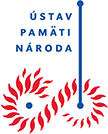BAUER, Zdeněk – PETRAKOVIČ, Michal. The shelter Na jamách above Bratislava. How the future Czechoslovak-Israeli filmmaker Peter Freistadt was saved from deportation
Peter Freistadt (1931–2000) was among the Jewish people who were temporarily exempted from the first wave of deportations of Jews from Slovakia in 1942. Because Peter's father was acknowledged as economically important to Slovakia, the whole family avoided removal to a labour centre and being transported to a Nazi camp. However, circumstances changed during the German occupation of Slovakia in autumn 1944 and when the second wave of deportations began. Shortly before that, Peter's mother had found a hiding place for her son with a family of Jehovah's Witnesses living on the outskirts of Bratislava. It is unknown where the parents hid. However, during one of the first reinstated deportations, they were taken to Auschwitz, where they then perished. Young Peter successfully hid for five and a half months. In February 1945, the Gestapo raided the house where he was hiding and arrested him. At the beginning of March, he was taken to the camp in Sereď (Szered), and from there, about a week later, to the Terezín (Theresienstadt) ghetto in the Protectorate of Bohemia and Moravia. There, he was liberated. However, the traumas he experienced during the war often prevented him from successfully integrating into post-war Czechoslovakia in the following years. He found peace only after 1965 when he emigrated to Israel, where he built a successful career in theatre and film.

Updated at: 27.01.2025
Print Tweet